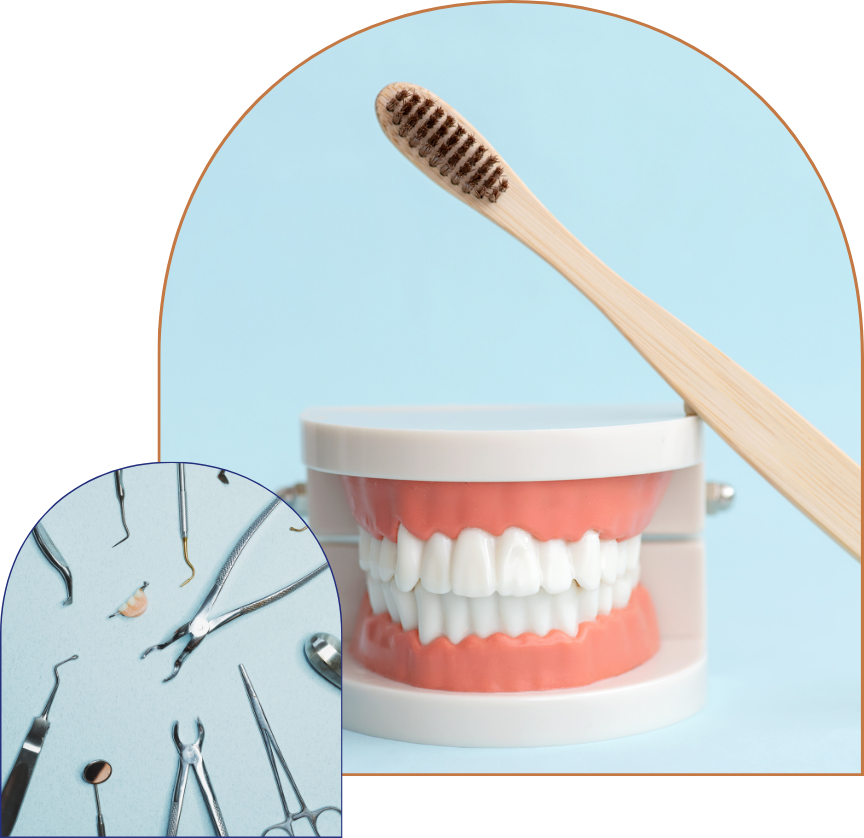Compounding Dosage Forms for Dentistry
Learn how compounding dosage forms for dentistry help address pain management, dry mouth, TMJ, periodontal therapy, and more.

Table of Contents
Compounding Dosage Forms for Dentistry
Central Ohio Compounding Pharmacy (COCP) compounds dosage forms, tailored to address patients’ specific dental needs. From topical pain relief to managing conditions such as dry mouth, temporomandibular joint (TMJ) disorders, and periodontal disease, compounded medications offer alternatives that may not be available commercially.
Topical Therapy for Pain
Pain management is a critical aspect of dentistry. Many procedures and conditions can cause discomfort, requiring localized and practical solutions. Compounded topical medications may address pain associated with dental treatments, oral surgeries, and common conditions like ulcers or lesions.
Commonly Compounded Topical Pain Medications
- Lidocaine-based gels or Rinses: Used for numbing specific areas of the mouth prior to procedures like cleanings, extractions, or fillings.
- Benzocaine Formulations: This can be compounded into creams or gels for quick relief of minor irritations, such as those caused by dentures or braces.
- Combination Therapies: Custom formulations may include multiple active ingredients, such as lidocaine and anti-inflammatory agents, to address both pain and swelling.
By providing targeted pain relief, these medications improve patient comfort and reduce anxiety associated with dental visits.
Managing Dry Mouth, Stomatitis, and Mucositis
Dry mouth (xerostomia), stomatitis, and mucositis significantly affect oral health and quality of life. These issues are often caused by medications, radiation therapy, or systemic diseases, making individualized therapies crucial.
Compounded Medications for Dry Mouth
- Moisturizing Sprays or Lozenges: Designed to mimic natural saliva and provide immediate relief from dryness.
- Anti-Inflammatory Mouthwashes: Incorporating corticosteroids or other soothing agents to reduce inflammation associated with stomatitis or mucositis.
- Custom-Flavor Options: This is especially useful for pediatric or geriatric patients, encouraging regular use.
These formulations not only alleviate discomfort but also help prevent complications like tooth decay and oral infections that often accompany dry mouth.
Suppressing the Gag Reflex During Dental Procedures
A strong gag reflex can make routine dental visits uncomfortable for patients and challenging for providers. Compounding pharmacies can create customized solutions to manage this reflex.
Solutions for Gag Reflex Management
- Topical Anesthetics: Applied to the soft palate or throat to reduce sensitivity during procedures such as X-rays, impressions, or intraoral scans.
- Adjusted Potency: Compounded medications can be prepared in strengths that match the patient’s sensitivity level for optimal comfort.
These medications allow dental providers to perform necessary treatments more efficiently while ensuring a positive experience for the patient.
Temporomandibular Joint Disorder (TMJ)
Temporomandibular joint (TMJ) disorders can cause pain, stiffness, and limited jaw movement. Compounded medications offer targeted therapies to manage TMJ symptoms.
Common Compounded Medications for TMJ
- Topical Pain Relievers: Compounded creams containing muscle relaxants, anti-inflammatory agents, or anesthetics provide localized relief to the jaw area.
- Transdermal Gels or Patches: Deliver medications directly to the affected area, minimizing systemic side effects.
- Custom Anti-Spasmodic Formulations: Target jaw muscle spasms, reducing tension and discomfort.
These customized options complement other TMJ therapies, such as dental appliances or physical therapy, improving patient outcomes.
Transdermal Anti-Emetics for Nausea
Nausea can be a common issue in dental care, particularly for patients undergoing oral surgery or those with dental anxiety. Compounded transdermal anti-emetics provide an alternative to oral medications.
Benefits of Transdermal Anti-Emetics
- Consistent Absorption: Transdermal patches offer steady medication delivery, reducing nausea without the need for frequent dosing.
- Ease of Use: Eliminates the need for swallowing pills, which can be difficult for post-surgical patients.
- Customizable Dosing: Allows for precise adjustments based on patient needs.
By offering an alternative delivery method, compounded transdermal anti-emetics enhance patient comfort during and after dental procedures.
Periodontal Therapy with Compounded Medications
Periodontal disease, or gum disease, requires treatment to manage infection, inflammation, and tissue damage. Compounded medications provide targeted therapies that support periodontal health.
Examples of Compounded Periodontal Medications
- Antibiotic Gels: Customized formulations containing antibiotics like doxycycline or metronidazole are applied directly to periodontal pockets to combat bacterial infections.
- Anti-Inflammatory Rinses: Mouthwashes with anti-inflammatory agents reduce gum swelling and irritation.
- Regenerative Agents: Compounds that include growth factors or vitamins to promote tissue healing and regeneration.
These medications help prevent disease progression and support recovery in patients undergoing periodontal treatment.
Customized Mouthwashes for Specific Needs
Mouthwashes are a staple in dental care, addressing issues such as infection control, pain relief, and oral hygiene. Compounded mouthwashes allow for personalized formulations tailored to individual needs.
Uses of Compounded Mouthwashes
- Antibacterial Rinses: Include agents like chlorhexidine or iodine to reduce bacteria and prevent infection after dental procedures.
- Pain Relief Rinses: Combine anesthetics with anti-inflammatory ingredients for post-surgical or orthodontic discomfort.
- Moisturizing Solutions: Designed for patients with chronic dry mouth, these rinses improve hydration and oral comfort.
Custom mouthwashes enhance outcomes and patient compliance by targeting specific conditions.
Additional Uses for Compounded Medications in Dentistry
Beyond common applications, compounded medications address other dental care challenges, offering versatile solutions for various conditions.
Orthodontic Pain Management
Patients undergoing orthodontic treatment may experience discomfort from braces or aligners. Compounded gels or rinses can alleviate irritation and provide localized pain relief.
Tooth Sensitivity
Custom formulations with desensitizing agents, such as potassium nitrate or fluoride, reduce sensitivity caused by whitening agents, gum recession, or other factors.
Pediatric Dentistry
Children often require medications in specific forms or flavors to encourage use. Compounded options may make dental treatments more palatable for younger patients.
Pre-Surgical Preparations
Customized solutions for infection prevention or localized anesthesia support safer and more comfortable surgical procedures. Compounding pharmacies collaborate with dental providers to address these unique needs, improving the overall quality of dental care.
For specific formulas, ask our pharmacists.
Why Compounding is Critical in Dentistry
Compounding dosage forms for dentistry fill gaps in traditional treatment approaches by offering personalized solutions for pain management, oral health conditions, and procedural challenges. By working with COCP, dental providers can deliver tailored therapies that enhance patient outcomes and satisfaction.
